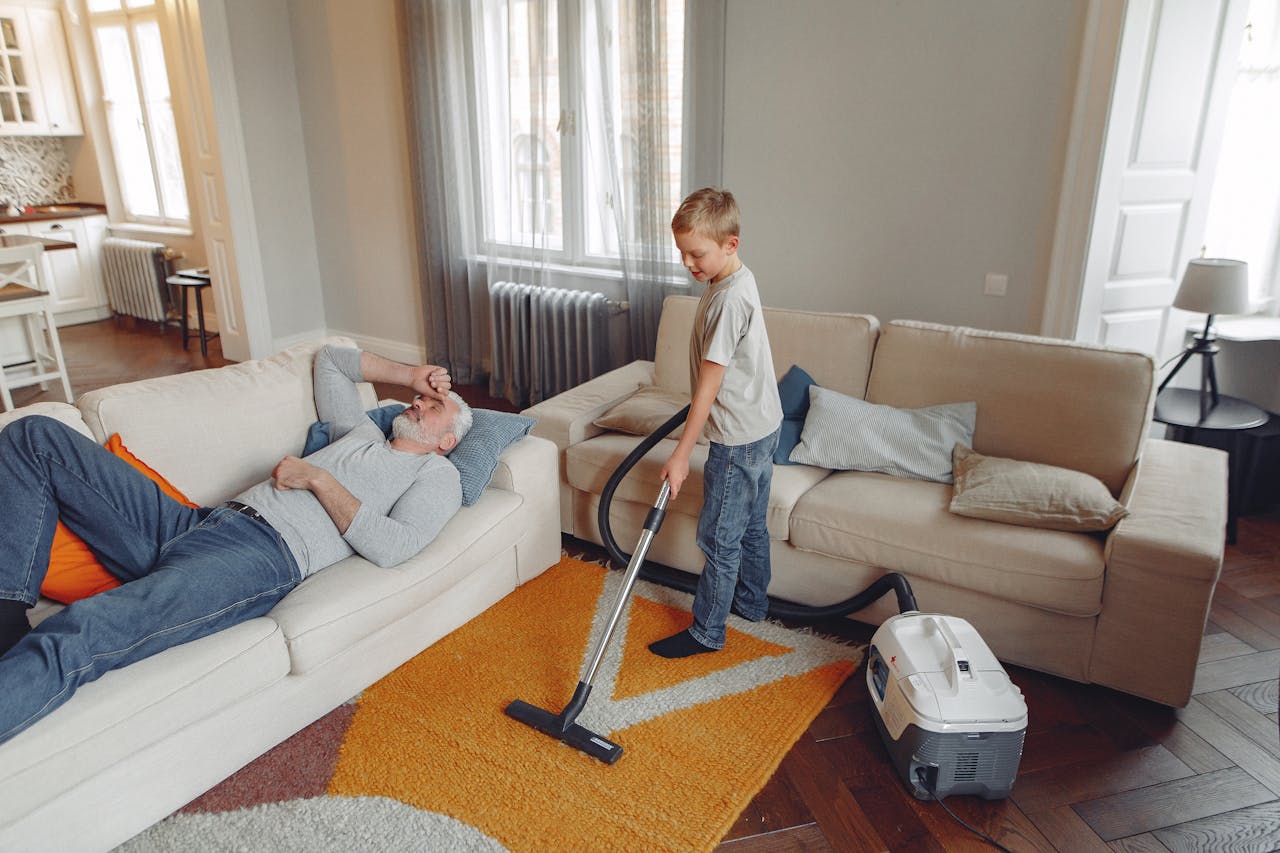Households once followed strict rules that shaped daily life, from discipline to daily routines. These traditions made sense in their time, but family life today looks very different. As parenting styles become more flexible and communication more open, many old expectations no longer fit. Technology, shifting roles, and greater awareness of individual needs have changed how we live. These ten outdated rules wouldn’t work in most modern homes.
1. Children Must Never Talk Back

In the past, parents expected kids to stay quiet and follow directions without question. Speaking up felt like disrespect. Today, parents encourage respectful communication. Kids learn to voice their opinions and ask questions while still showing manners. Open dialogue helps build trust and confidence. Staying silent is no longer the only way to behave properly.
2. Everyone Eats the Same Food

Families used to serve one meal for everyone, no matter personal needs or preferences. Today, meals are often adjusted for allergies, sensitivities, or lifestyle choices. Respecting individual dietary needs is now part of caring for the whole family.
3. Children Should Stay Quiet During Adult Time

The old idea that kids should be seen but not heard kept them on the sidelines during meals and conversations. Now, families include children in discussions and encourage them to ask questions. Listening to kids helps build confidence and connection.
4. Finish Every Bite on Your Plate

In the past, leaving food was wasteful or disrespectful. Kids were told to clean their plates, even when full. Today, families focus on healthy eating habits and teach children to stop when they’re satisfied. Mindful eating replaces food pressure.
5. No Entertainment Until Chores Are Done

Chores once came before any kind of play or rest. But now, families often use breaks, rewards, or flexibility to encourage responsibility. Strict routines have given way to approaches that consider motivation and balance.
6. Wait for Dad to Handle Discipline

It was once common for mothers to “wait until your father gets home” to deal with behavior. This relied on outdated gender roles. Today, both parents typically share responsibility for setting rules and handling discipline in real time.
7. Homework Before Anything Else

Homework first rules once meant no rest or play until schoolwork was done. Today, many families allow short breaks to help kids recharge. Mental rest can improve focus and reduce stress, making homework time more effective.
8. Fixed Bedtimes for All Kids

Decades ago, kids often had the same set bedtime every night. But modern families adjust bedtimes based on age, school demands, and sleep needs. The goal now is healthy sleep routines, not one-size-fits-all schedules.
9. Only Girls Do Housework

Housework was once divided by gender, with girls expected to clean and cook while boys were not. Today, most families believe in teaching all children to help out equally. Chores are life skills, not based on gender.
10. Respect Elders No Matter What

Children were once told to always respect adults, even when treated unfairly. Today, families teach kids to be polite but also set healthy boundaries. Respect goes both ways, and speaking up is part of emotional safety.


